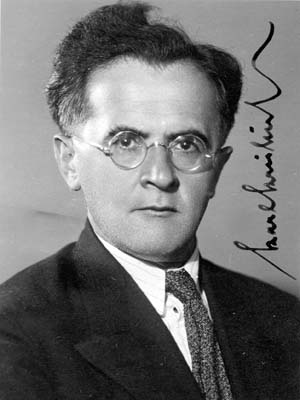
Vereinte Dienstleistungsgewerkschaft is a German trade union based in Berlin, Germany. It was established on 19 March 2001 as the result of a merger of five individual unions and is a member of the German Trade Union Confederation (DGB). With around 1.9 million members, Verdi is the second largest German trade union after IG Metall. It currently employs around 3000 members of staff in Germany and has an annual income of approximately 454 million Euros obtained from membership subscriptions. The trade union is divided into 10 federal state districts and five divisions and is managed by a National Executive Board (Bundesvorstand) with nine members. Frank Bsirske was the chairman of Verdi from its founding in 2001 until September 2019, when Frank Werneke was elected.
Trade unions in Germany have a history reaching back to the German revolution in 1848, and still play an important role in the German economy and society.
Zentralgewerkschaftskommission des Deutschen Gewerkschaftsbundes in der Tschechoslowakischen Republik was a German Social Democratic trade union centre in Czechoslovakia. From 1927 onwards, it was an autonomous structure inside the Czechoslovak labour centre OSČ. The organization was dissolved as Czechoslovakia fell under German occupation.
The Czechoslovak Social Democratic Workers Party in the Republic of Austria was a political party in Austria, working amongst the Czech minority. The party was founded on December 7, 1919, as the Vienna branch of the Czechoslovak Social Democratic Workers Party separated itself from the party centre in Prague. The party worked closely together with the Social Democratic Workers Party of Austria (SDAPÖ), and cooperated with the Austrian Social Democrats on all political issues. The party contested parliamentary elections on joint lists together with SDAPÖ.
The Social Democratic Party of the Free City of Danzig was a political party in the Free City of Danzig. After the creation of the Free City of Danzig in 1919, the Danzig branch of the Social Democratic Party of Germany (SPD) separated itself from the party, and created the Social Democratic Party of the Free City of Danzig. The new party did however maintain close links with the SPD, and its political orientation was largely the same as that of the SPD.
The General German Trade Union Federation was a confederation of German trade unions in Germany founded during the Weimar Republic. It was founded in 1919 and was initially powerful enough to organize a general strike in 1920 against a right-wing coup d'état. After the 1929 Wall Street crash, the ensuing global financial crisis caused widespread unemployment. The ADGB suffered a dramatic loss of membership, both from unemployment and political squabbles. By the time the Nazis seized control of the government, the ADGB's leadership had distanced itself from the Social Democratic Party of Germany (SPD) and was openly cooperating with Nazis in an attempt to keep the organization alive. Nonetheless, on May 2, 1933, the SA and SS stormed the offices of the ADGB and its member trade unions, seized their assets and arrested their leaders, crushing the organization.
The General Commission of German Trade Unions was an umbrella body for German trade unions during the German Empire, from the end of the Anti-Socialist Laws in 1890 up to 1919. In 1919, a successor organisation was named the Allgemeiner Deutscher Gewerkschaftsbund, and then in 1949, the current Deutscher Gewerkschaftsbund was formed.
Das Volksrecht was a left-wing newspaper published from Offenbach am Main, Weimar Germany between 1925 and 1933. Initially it was an irregular publication of the communist city council group, but in 1928 it became a local mouthpiece of the Right Opposition. It was published on a weekly basis until the National Socialist takeover in 1933.

The Trade Union International Public Service and Allied is a section of the World Federation of Trade Unions representing public sector workers.
The Trade Unions International of Building, Wood, Building Materials and Industries, also known as the Trade Unions International of Construction, Wood, Building Materials and Industries, or by its French acronym UITBB is a Trade Union International affiliated with the World Federation of Trade Unions.
Lothar Lindner is a former German trade union leader. He was chairman of the central committee of the building and timber industry union in the East German Free German Trade Union Federation and President of the International Federation of Unions in the building, timber and building materials industries in the World Federation of Trade Unions (WFTU).
Emmi Dölling was a Czechoslovak/German political activist (KPD/SED) and journalist.
The Communist Party of Czechoslovakia, Section of the Communist International was a communist party in Czechoslovakia. The party emerged from a split in the German labour movement in the Czechoslovak Republic and functioned parallel to the Czech Marxist left movement for most of 1921. The party represented a more radical position compared to the Czech Marxist left, and fully supported adherence to the Communist International. It eventually merged into the Communist Party of Czechoslovakia.

Karl Kreibich, also known as Karel Kreibich, was a Sudeten German communist politician and author in Czechoslovakia. Kreibich emerged as the main leader of the revolutionary socialist movement amongst German workers in Bohemia after the First World War. He was a leader of the Communist Party of Czechoslovakia and a functionary of the Communist International. During the First Czechoslovak Republic, he was elected to parliament thrice. During the Second World War he was part of the exiled Czechoslovak State Council, based in London. After the war he served as Czechoslovak ambassador to the Soviet Union.

The Public Services, Transport and Traffic Union was a trade union representing transport and public service workers in West Germany.

The Trade, Banking and Insurance Union was a trade union representing workers in commerce and finance in Germany.
Reichsvereinigung der Deutschen Gewerkschaften was a trade union centre in the First Czechoslovak Republic. The organization had its headquarters on Krakovská street 11 in Prague. Initially the Reichsvereinigung grouped all the main German nationalist, or völkisch, trade unions in the Sudetenland. As of 1921, the affiliates of the Reichsvereinigung claimed to have 49,500 members. By the end of 1928, the organization claimed to have 51,500 members. The Reichsvereinigung was a supposedly apolitical body for German workers.
Union der Bergarbeiter in der CSR, initially known as Union der Bergarbeiter Österreichs, was a miners trade union of miners in Austria and the First Czechoslovak Republic 1903–1938. Initially a multi-ethnic union in Habsburg Austria (Cisleithania), it was divided along ethnic lines in 1910. After the establishment of the Czechoslovak Republic, it became a union for miners of German ethnicity.
The Union of Swiss Postal, Telegraph and Telephone Personnel was a trade union representing communication workers in Switzerland.





